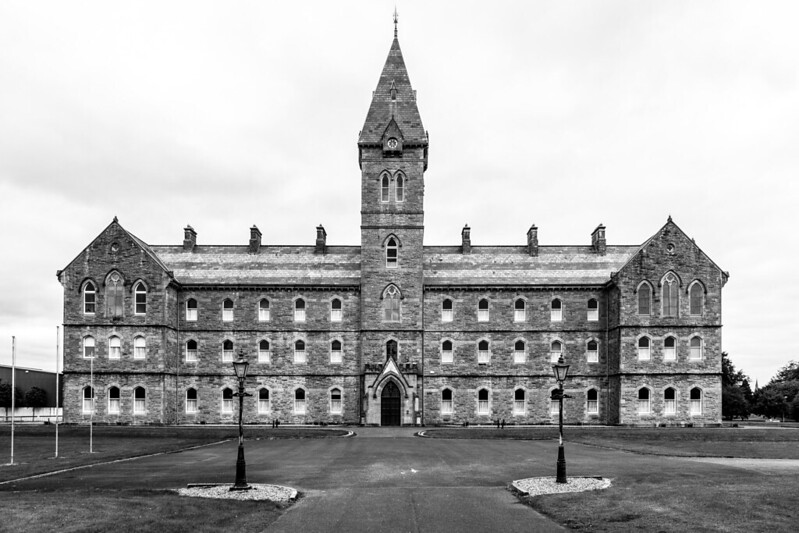- After bankruptcy loan lenders
- After bankruptcy car loan
- After bankruptcy loan cash advance
- After bankruptcy personal loan
There are lenders who will lend to you after bankruptcy, especially if you are steadily employed and willing to pay a high interest rate. How soon you can get a loan after bankruptcy depends on which type of bankruptcy you filed. Chapter 7 bankruptcy With a Chapter 7 bankruptcy, your property is liquidated to cover your debts, and any remaining balances are discharged. The whole process can usually be resolved within a few months, and there are no payments to make afterward. Because of this relatively expedient process, you could feasibly accumulate enough disposable income to get approved for a small loan just a few months after bankruptcy. Chapter 13 bankruptcy With Chapter 13 bankruptcy, you set up a payment plan to repay your debt, typically over a period of three to five years. When the payment plan is complete, the remaining debt gets discharged. However, while the payment plan is still active, your monthly payments may leave you with little-to-no disposable income. This can make it hard to get approved for a loan.
After bankruptcy loan lenders
Even though the foreclosure is not recorded after the discharge date of their Chapter 7 Bankruptcy. The foreclosure can be recorded at a much later date than the Bankruptcy discharge date and that will not matter Under Fannie Mae and Freddie Mac conventional mortgage guidelines, the waiting period starts from the discharge date of the Chapter 7 Bankruptcy The mortgage cannot be reaffirmed The housing event needs to be finalized by the following: Foreclosure Deed In Lieu Of Foreclosure Short Sale Many borrowers can now qualify for Conventional Loans but not FHA Loans if they had a mortgage part of their Chapter 7 Bankruptcy. With government loans, the waiting period start date is the date the deed has been transferred out of their name after the discharged date of Chapter 7. Conventional Loan After Bankruptcy Requirements And Qualifying With Lender With No Overlays Home Buyers or Homeowners who need to qualify for a mortgage with a direct lender with no overlays on government and/or conventional loans can contact us at The Gustan Cho Team at Loan Cabin at 262-716-8151 or text us for faster response.
If you are in a position to put forward a credible plan, Chapter 13 is often preferable, because it allows you to save your home from foreclosure. Ultimately, there are six types of bankruptcy filings. To choose the one that best suits your financial position, it is advisable to consult with a lawyer. Check with a lawyer to ensure that you file the type of bankruptcy that best suits your financial position. How to Recover After Filing for Bankruptcy Here are a few steps that you can take to help regain control of your situation. Maintain a job and a home It is vitally important that you get—and keep—a job as soon as possible, if you don't have one already. Finding a good place to live ranks a close second, if this is an issue. Stable residential and employment histories are necessary because they show creditors that you are reliable. A growing number of landlords are checking credit references as a means of screening out possible unreliable tenants. If you are not able to rent an apartment, you may have to room with a friend or relative until your credit improves.
- Commercial restaurant floor mats
- After bankruptcy car loan
- Hvac license texas
- After bankruptcy loan to build credit
- Education needed to be a graphic designer
- After bankruptcy loan personal unsecured
After bankruptcy car loan
It's likely that you can get approved for a loan sooner if you filed Chapter 7, but there's no guarantee. Likewise, if you find a well-paying job that doubles your disposable income, you may be able to find a loan even with a Chapter 13 payment plan. Loan approval depends on a number of factors, including your employment situation, income, debt-to-income ratio, credit score. Some lenders will even consider your education history and civil status before making you an offer. Where can you find a loan after bankruptcy? While many lenders will not approve borrowers with a bankruptcy on their record, some will consider them on a case-by-case basis. Bankruptcy certainly increases your level of risk for the lender, but there are steps you can take to offset the risk. How? If you have valuable assets, such as a car or a home, left after the bankruptcy, you can use them as security for a loan. Having a high-income and agreeing to pay a medium-to-high interest rate will also improve your chances of qualifying for a loan.
In addition, bankruptcy will remain on your credit file for up to six years, meaning you will struggle to borrow money within this period as you will be seen as less creditworthy. How does bankruptcy impact my credit? Bankruptcy will inevitably have a negative affect on your credit score, but you are likely to see your credit score drop before then, especially if you are in debt and unable to keep making monthly payments. After you have been declared bankrupt your credit score will usually reflect this, so be prepared to have a bad or very poor credit score. This will make it much more difficult for you to be accepted for any sort of credit, especially for any amounts over £500 where you will have to declare your bankruptcy. Will it be difficult to get a mortgage with the bad credit? Getting a mortgage is the largest amount you will borrow in your lifetime and since you will have to declare your bankruptcy to the lender, you will most likely be rejected by most major mortgage providers.
A bankruptcy loan most often means obtaining a loan after a bankruptcy case has been discharged. While the plentiful availability of post bankruptcy loans may be surprising, the more difficult task often comes when fitting one's budget in with the terms of the mortgage, credit card or auto loan offered. Loans to avoid bankruptcy or foreclosure work very well but they can be very hard to get unless the homeowner has 30% or more equity in the home or still has good credit. Some homeowners may be looking for a personal or unsecured loan to stop a bankruptcy. Unfortunately, unless their credit scores still remain very good these loans do not exist. When a loan cannot prevent a bankruptcy many other debt options may save the debtor from a bankruptcy filing. For debtors in an active Chapter 13 who have been current for the past year, refinance loans to pull out of the bankruptcy can pay off the creditors and sometimes lower payments as well.
After bankruptcy loan cash advance
Employers may also request credit scores and histories of their potential applicants as a measure of personal responsibility. A spell of bad luck can fuel a vicious cycle that may prevent you from getting a job that pays enough for you to pay off your debts. Do what you can to push forward anyway and find a job that can be the foundation of putting the bankruptcy behind you. Pay your bills It is imperative that you stay current on all of your monthly bills and other payments so that your post-bankruptcy credit record stays clean. There is absolutely no room for even the tiniest amount of backsliding in this regard. This means that you must be extremely watchful of every expenditure so that your expenses don't build beyond what you can afford to cover. Keep a bank balance Opening and maintaining a checking and/or savings account is also necessary. Having a history of charged-off bank accounts could hinder your ability to open a new checking account. The good news is that many banks offer second-chance programs for people in this situation.

After bankruptcy personal loan
In a Nutshell Filing bankruptcy gives you a fresh start, but what if you need to secure a loan after your discharge has been entered? While you're still at the mercy of lenders and financial institutions, getting a loan is not impossible. Guest Contributor Alicia Grayson has put together this short guide on everything you need to know about getting a post-bankruptcy loan. What does bankruptcy do to your credit score? Can you get an unsecured personal loan after bankruptcy? Things to keep in mind before you apply for a post-bankruptcy loan Filing for bankruptcy is more common than you think. In fact, the Administrative Office of the U. S. Courts revealed that 772, 646 cases of bankruptcy were filed in 2019. While bankruptcy can help you get some relief from your debts, it's not a catch-all solution to your financial woes. While you recover, you may find yourself in need of a loan to further your business or help you regain your financial footing. A huge caveat to filing for bankruptcy is that you might find yourself at the mercy of lenders and financial institutions — especially if you're planning on getting an unsecured loan — though it's not an impossible situation.


Furthermore, the date you've filed for bankruptcy matters, too. It's harder for people who haven't landed a stable job to get an unsecured loan if they've only recently filed for bankruptcy. Finally, your current credit score weighs the most when it comes to getting a loan, as this primarily dictates your unsecured loan's payment scheme and interest rates. However, fixing your credit score after bankruptcy is very much possible — paying your bills when they are due and sensibly using your credit card are two small, but significant, ways to rebuild your credit score. Things to keep in mind before you apply for a post-bankruptcy loan Of course, some lenders will take advantage of your post-bankruptcy situation and easily give you unsecured loans with a high annual percentage rate (APR). While this may seem enticing, especially if you're in a rush, pushing through with unsecured loans from sketchy lenders will only spell disaster for your financial wellbeing. To help you make a sound decision, it might do you well to seek outside help.
In order for lenders to be able to sell conventional loans on the secondary market to Fannie/Freddie, the loans they originate and fund needs to conform to Fannie/Freddie Guidelines. This is why lenders following conforming guidelines.